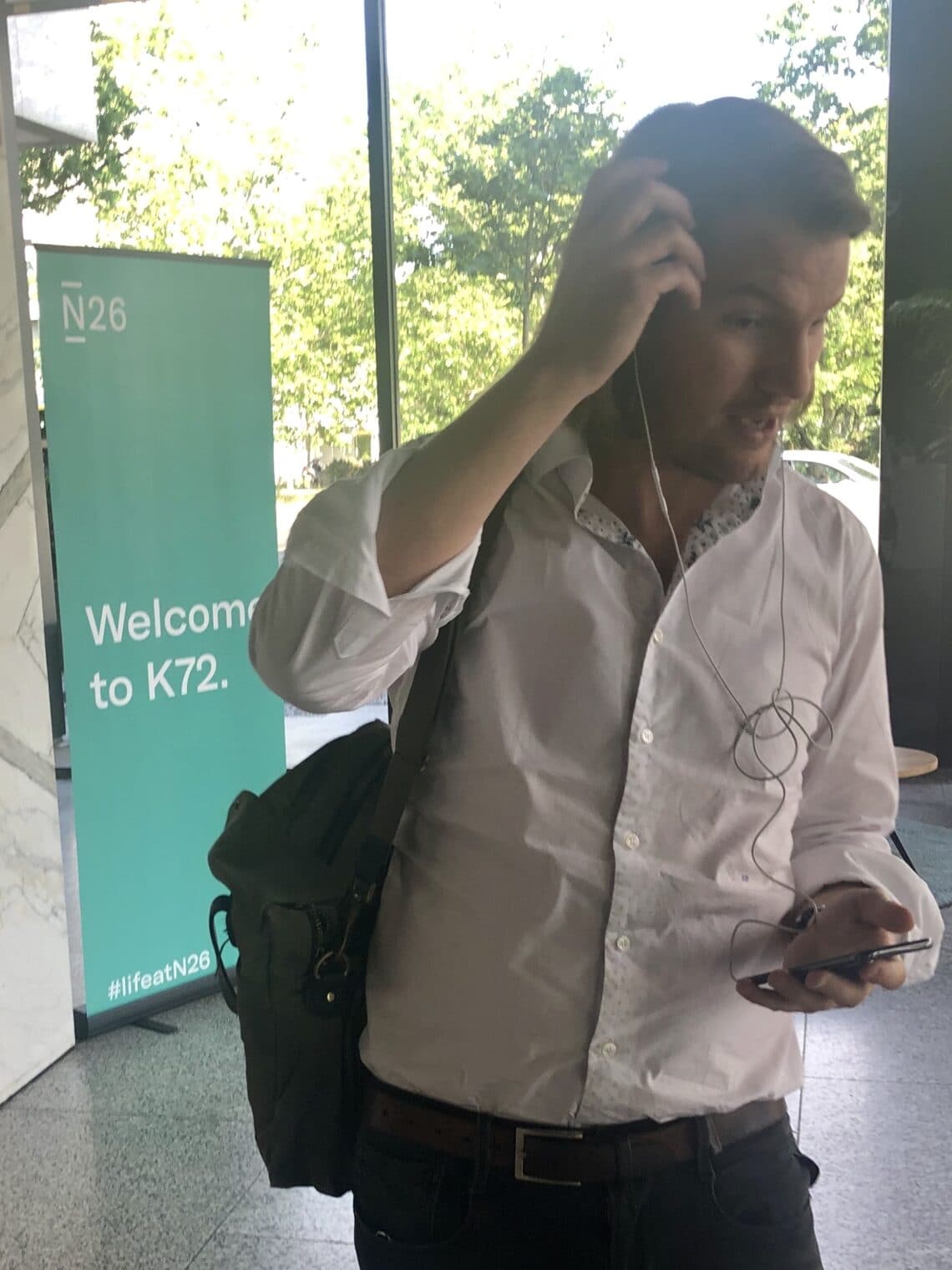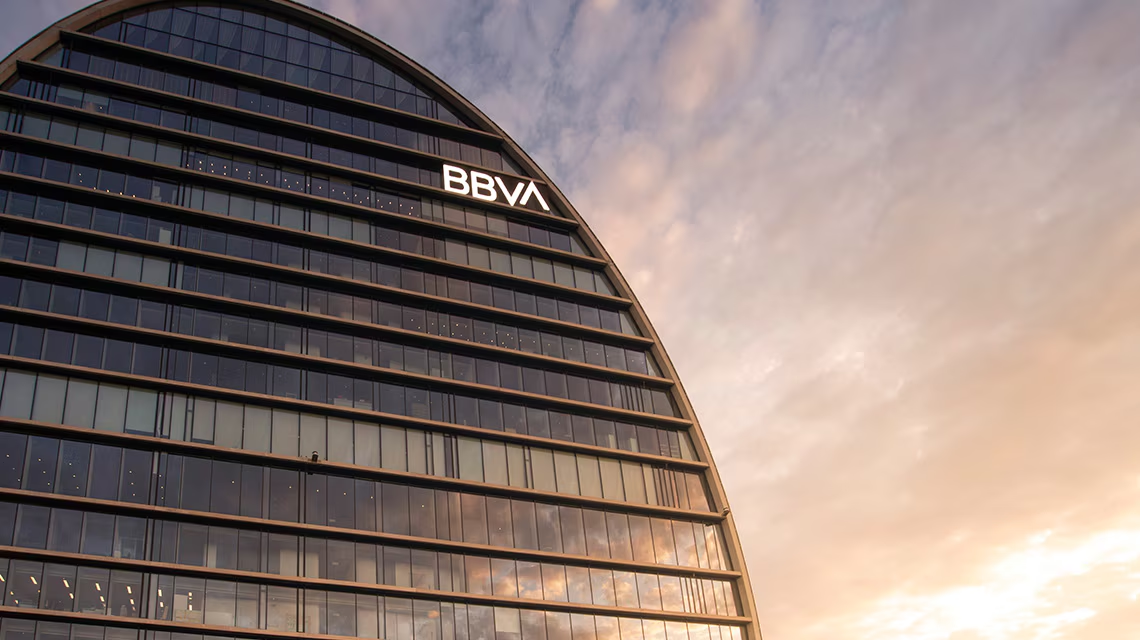Dies gleich vorab: Dieser Beitrag ist zunächst einmal persönlich und im Weiteren auch politisch. 2013 habe ich ein Angelinvest in ein Gründerteam gemacht, das eine sehr coole Produktidee hatte und das auf mich den Eindruck machte, dass es von seiner Idee zutiefst überzeugt war. Das Produkt hieß Papayer und war im Kern eine Teenager-Debitcard mit einer App, die auch von den Eltern eingesehen werden konnte. Da das Thema „Karte“ gerade bei meinen beiden älteren Töchtern anstand, passte das perfekt! Papayer funktionierte auch, skalierte aber nicht so richtig. Was machten die beiden Gründer Valentin und Max? Statt aufzugeben, unternahmen sie einen Pivot und entwickelten ihre Vision einer „Erwachsenenbank“, die nur eine Smartphone-App ist. Sehr viele haben diese Idee und einige auch mich belächelt. Zwei Angelinvestoren sind damals mit einer netten Rendite gleich ausgestiegen – ich habe nachgeschossen, denn ich bin seit 2000 – den Zeiten von Paybox und Payitmobile – absoluter Fan des Mobile-Payment. Und Mobile-Banking ist mit Einführung der Smartphones die logische Konsequenz daraus!
Der Rest der Story ist bekannt: Papayer wurde zu Number 26, heute N26. Seit Erhalt der Banklizenz 2016 bin ich Beiratsmitglied der N26-Bank und habe einen anderen Einblick in die Entwicklung dieses Unternehmens, das viele (medial) und wohl nicht immer mit den besten Hintergedanken nur von außen betrachten.
Am 22. März ordnen die Landesregierungen aufgrund der Corona-Pandemie Ausgangsbeschränkungen an – die Wirtschaft steht nahezu still. Die Bundesregierung packt die „Bazooka“ aus und flankiert u. a. mit Erleichterungen für Kurzarbeit. Dieses Instrument nutzen nicht nur tausende (kleinere) Unternehmen in Deutschland, sondern auch die namhaften DAX-Titel. Seit Ende April zeigt fast jedes dritte Unternehmen Kurzarbeit an. N26 führt dieses Instrument ebenfalls für einen Teil (knapp 10 %), seiner Belegschaft ein (die meisten davon blieben mit 60-80 % der Arbeitszeit an Bord). In der medialen Finanz-Szene entsteht jedoch der Eindruck, dass N26 die einzigen sind, denn jedes „führende“ Wirtschaftsblatt berichtet darüber. Dass auch Start-ups die Auswirkungen der Pandemie zu spüren bekommen und sogar noch härter treffen kann als bereits profitable Unternehmen, wird geflissentlich ausgeblendet.

Am 13. August bekomme ich über Twitter eine Exklusivmeldung von @financefwd: N26, Betriebsrat, einstweilige Verfügung, Bild von Max und Valentin. Da gab es wohl mal wieder einen „informellen news-feed“ für Finance Forward – fair enough. Am Tag darauf treffe ich Max zu einem länger geplanten Update in Berlin – perfektes timing um auch dieses Thema zu besprechen. Das Thema „Betriebsrat bei N26“ nimmt zeitgleich dazu in den (sozialen) Medien derart an Fahrt auf, die sich nur noch damit erklären lässt, dass sich die von der Gluthitze draußen aufgeheizten Gemüter offensichtlich nur noch dadurch Kühlung versprechen, indem sie in das nicht vorhandene Payment-Sommerloch Tweets, Artikel und Kommentare in hoher Schlagzahl absetzen. Das nennt man heute „gelebte Mediendemokratie“ oder auch neudeutsch „Shitstorm“.
Auch Maik Klotz, letzter (noch) nicht „Deutschbanker“ und damit „last man standing“ des PaymentandBanking Teams (Anmerkung der Radaktion: es gibt einige nicht DeutschbankerInnen bei Payment & Banking – Nicole Nitsche, Christina Casalla, Julia Tschawdarow oder Miriam Wohlfarth sowie viele freie MitarbeiterInnen), packt via Twitter die große moralische Keule aus und wirft dem N26 Team „mangelnde soziale Verantwortung“ vor und fordert mich via Twitter zum Schlagabtausch auf….hier meine Antwort darauf:
Wenn Maik die Geschichte vom „NEINhorn“ bemüht, dann ist N26 ein NEINhorn im besten Sinne des Wortes: die beiden Gründer haben „nein“ zur Art und Weise des Bankings, wie es unsere Eltern seit jeher praktizieren, gesagt und hinterfragen nun zu Recht eine formalisierte Mitarbeitervertretung, die sich auf eine gesetzliche Regulatorik aus den 70ern des letzten Jahrhunderts stützt. Es ist den beiden Gründern, die die Chancen der Digitalisierung in einem Bereich ergriffen haben, der über viele Jahre die Umstellung auf moderne Technologie (bewusst) ausgeblendet hat, und die eine Vision zu einer innovativen Geschäftsidee entwickelt haben, nicht zu verübeln, dass sie dieses Vorgehen in Frage stellen und ihrerseits mit einer eigenen Idee dazu aufwarten.
Denn es ist m.E. schon eine legitime Frage, ob die Strukturen des deutschen Betriebsverfassungsgesetzes (BetrVG) aus 1972 den Anforderungen einer digital Economy und Startups mit disruptiven Geschäftsmodellen und der damit einhergehenden Agilität gerecht werden. Nicht dass wir uns hier falsch verstehen: Startups sind keine rechtsfreien Räume und die Beschäftigten sind nicht völlig schutzlos. Es geht doch vielmehr um die Frage, wie man diese Themen zeitgemäß umsetzen kann.
Denn die allerwenigsten, die sich jetzt in den sozialen Medien über N26 erheben, arbeiten selber in einem betriebsratsregulierten Unternehmen.
Marcus Mosen
Denn die allerwenigsten, die sich jetzt in den sozialen Medien über N26 erheben, arbeiten selber in einem betriebsratsregulierten Unternehmen und/oder kennen die Prozesse aus eigener Erfahrung, die damit einhergehen. Die Arbeit eines Betriebsrats ist nämlich zuvorderst eine höchst formale, die in der Praxis vor allem sehr viel Paperwork erfordert, nicht jedoch eine gestalterische. Hier herrscht immer noch der Grundsatz „nur wer schreibt, der bleibt“. Und je formaler sich die Parteien begegnen (müssen), umso unflexibler wird der Umgang miteinander. Daran ändert auch nichts der dem Gesetz innewohnende Grundsatz der „vertrauensvollen Zusammenarbeit“. Wie diese genau aussehen soll und wie man diese unter Beachtung der Flut von Detailregelungen lebt, beschäftigt seit Jahren Heerscharen von Anwälten und die Arbeitsgerichte. Was immer also die Triebfedern der Initiatoren der Betriebsratswahl waren, zeitnah und reibungslos werden sie ihre Ideen vermutlich nicht umsetzen können.
Gründer & CEO Valentin hat sich für die „Eskalation“ der Ereignisse in der vergangenen Woche öffentlich via LinkedIn entschuldigt. Und wer ihn kennt weiß, dass er dies auch so meint.
– Marcus Mosen
Wenn also nun Mitarbeiter/innen von N26 einen Betriebsrat gründen wollen, dann ist das ihr gutes Recht – auch unter Zuhilfenahme von Gewerkschaften. Dass sich diese medienwirksam in Szene setzen, ist nicht nur der Unterstützung für die Bildung eines Wahlvorstands geschuldet. Ver.di hat aufgrund abnehmender Mitgliederzahlen und vielfältiger Veränderungen im (Finanz)Dienstleistungssektor mit sinkenden Einnahmen zu kämpfen. Durch Lohneinbußen in der Kurzarbeit können zudem viele Mitglieder keine Gewerkschaftsbeiträge mehr zahlen. Dass man jetzt versucht, bei dem prominentesten FinTech-Unternehmen den Fuß in die Tür zu bekommen, verwundert nicht. Und auch nicht die reflexartige Schützenhilfe von Politikern wie Esken, Klingbeil, Scholz und Co – nur sollte man hier immer überlegen, ob einem diese Tweets tatsächlich zur Ehre gereichen, wie man an dem „charmanten“ Umgang der drei vorgenannten SPD-Granden untereinander ja aus der jüngeren Vergangenheit weiß…

Wenn die Gründer Max und Valentin nun einen alternativen Vorschlag ins Spiel bringen für ein maßgeschneidertes Unternehmenskonzept zur Vertretung auch der Interessen der Mitarbeiter/innen von N26 im Ausland, war klar, dass die Betriebsratsinitiatoren mit den sie unterstützenden Gewerkschaften dies als Ablenkungsmanöver abtun werden. Es ist aber das Recht und auch die Verantwortung unternehmerischen Handelns, wenn sich Gründer heute nicht nur über ein Modell der Mitbestimmung im 21. Jahrhundert Gedanken machen, sondern auch entsprechende Vorschläge dazu der gesamten Mitarbeiterschaft unterbreiten. Im konkreten Fall gehen die Gründer sogar über den Scope einzelner Mitarbeitergruppen hinaus und schlagen eine Plattform vor, die nicht nur die Interessen einiger im Blick hat, sondern die im gesamten Unternehmen – welches derzeit in vier verschiedenen Ländern jeweils eine nennenswerte Anzahl an Mitarbeitern beschäftigt. Mitarbeiterrechte und Mitwirkungsmöglichkeiten, zumal mit einem globalen Versprechen, lassen sich damit vielleicht sogar besser entwickeln, als wenn sie von einem Gesetz aus den 70ern vorgegeben werden.
Wer N26, das gerade in seiner Mitarbeiterzahl in den letzten drei Jahren stark gewachsen ist, mangelnde soziale Verantwortung unterstellt, hat das Unternehmen in Berlin noch nicht von innen gesehen und erlebt. Jeder kann für sich entscheiden, ob er dort arbeiten möchte oder nicht. Es gibt in Deutschland keinen Beschäftigungszwang! Für viele ist N26 ein Unternehmen, wie man es bis vor wenigen Jahren nur aus dem Silikon Valley kannte – agile, techi, diverse. Und wenn jetzt der/die ein oder andere meint, sich über N26 und sein Management negativ auslassen zu müssen und gar als „Arschlochbank“ bezeichnet, der verdankt sein üppiges, gesichertes Einkommen entweder den zwangsweise erhobenen staatlichen Rundfunkgebühren, Beiträgen auch von gering verdienenden Mitgliedern oder aber unseren Steuergeldern und hat selber noch nie in einer solchen unternehmerischen Verantwortung, in der es nicht immer nur einen Weg nach vorne gibt, gestanden.
Denn schaut man sich einmal den Trackrecord der Gewerkschaften im unternehmerischen Handeln an, dem fallen einem gleich die milliardenschweren Pleiten der Gewerkschaftsunternehmen Coop und Neue Heimat sowie der Bank für Gemeinwirtschaft ein. Und die Politik hat weder als Gesellschafter bei der Commerzbank noch zuletzt in der Aufsicht bei Wirecard ein glückliches Händchen gezeigt.
Gründer & CEO Valentin hat sich für die „Eskalation“ der Ereignisse in der vergangenen Woche öffentlich via LinkedIn entschuldigt. Und wer ihn kennt weiß, dass er dies auch so meint. Die Lernkurven waren bei vielen in den letzten Tagen steil, die Kommentare auch schon einmal unter der Gürtellinie. Wollen wir es für alle mit der Langweile und/oder der Hitze im Homeoffice entschuldigen.
Für mich ist N26 nicht nur ein Invest, sondern eine Überzeugung für Banking in einer zunehmend digitalen Welt. Zugegeben, hätte ich 2013 mein Geld in Deutsche Bank Aktien investiert, wäre der Wert heute um 75 % geschrumpft, von Wirecard ganz zu schweigen. Vielleicht kann man ja auch irgendwann N26 Aktien kaufen. Gut für den (FinTech)-Standort Deutschland wäre es in jedem Fall und auch für die bis dahin wohl weit mehr als 1500 Mitarbeiter/innen.
Der N26 BR-Wahl-Shitstorm hat sicherlich wieder vielen gefallen. Für mich ist er ein neuerliches Lehrstück, dass man seine Meinung definitiv nicht nur aus Tweets und anderen Social Media ziehen sollte. Auch wenn wir seit #Trump und #FakeNews wissen, dass man mit geringem Aufwand ganz schnell „große“ Politik machen und viel Porzellan zerschlagen kann.





